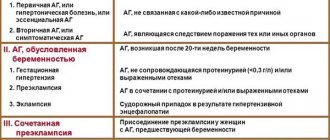Tizin during pregnancy: benefit or unjustified risk?
There is often debate among expectant mothers about whether it is permissible to use vasoconstrictors, including Tizin, during pregnancy. For an ordinary person, a runny nose does not cause as much trouble as for a woman carrying a child, because it is often unacceptable to use even the most banal, seemingly, means to relieve nasal congestion, because the medicine can harm the unborn baby.
Any medication is always accompanied by instructions for use, including Tizin. However, in order not to harm herself and the child, a pregnant woman should use common sense and not neglect the advice of a doctor. To understand whether Tizin is suitable for pregnant women, you should familiarize yourself with the main characteristics of the drug.
Which cold drops are safe during pregnancy?
Colds and sinusitis during pregnancy cause a lot of inconvenience and problems. How to be treated correctly in order to recover faster, how to choose suitable nasal drops during pregnancy - every woman needs to know. After all, sometimes even a drop of the wrong medicine can negatively affect the development and growth of the unborn baby.
Application
Drops needed:
- for colds;
- with sinusitis;
- with vasomotor rhinitis - runny nose of pregnant women. It appears due to changes in hormonal levels - dysfunctional disorders of the nervous and cardiovascular systems contribute to stagnation of blood in the nasal mucosa, which leads to a runny nose. The most common time of appearance is the first trimester (3–7th week of pregnancy). Rhinitis is especially noticeable when exposed to cold air. Characterized by nasal congestion without copious discharge. At night, the condition does not improve, and may even worsen if there is a food allergy. Accompanied by copious discharge after eating hot, hot or spicy food;
- with hay fever - allergies to flowering plants. Disease of the spring-summer period. It manifests itself as severe paroxysmal sneezing, lacrimation, runny nasal discharge, and itching in the nose. At night a woman feels better than during the day;
- for rinsing the nose from infection after being in crowded places during an epidemic of viral diseases.
Difficulty breathing through the nose causes a lot of inconvenience: you have to live with your mouth open, smells are poorly perceived, your mouth becomes dry, an unpleasant odor appears from the nasopharynx, etc. But this is only a minor disruption to a woman’s quality of life.
The most important problem is the risk of developing fetal hypoxia. If the nasal breathing of the expectant mother is impaired, the child is forced to develop in conditions of constant lack of oxygen. This leads to developmental delays, and in severe cases, to the threat of miscarriage or termination of pregnancy.
In addition, difficulty in nasal breathing in a pregnant woman can cause sleep disturbances and the development of snoring, which in turn causes arterial hypertension and preeclampsia (a complication of pregnancy that is manifested by high blood pressure, swelling and protein in the urine).
Saline solutions
Promote the normal release of mucus, reduce swelling of the mucous membrane, partially reduce inflammation, and wash away thick mucus. The nasal spray is easy to use and can be used at any time without a doctor's prescription.
Indications:
- liquid discharge due to colds and allergies;
- thick discharge;
- rinsing the nose from infection;
- sinusitis.
During pregnancy, all types of saline solutions are allowed. You can buy a ready-made spray at the pharmacy, use saline solution, or rinse your nose with a homemade sea salt solution.
For swelling, it is better to choose a hypertonic spray - Aquamaris, Quix and others with a salt concentration of 2.6%. To wash away thick secretions and preventively clean the nose, you can drip saline solution, mineral water (Borjomi, Essentuki), or low-concentrated Salin spray into the nose.
Vasoconstrictors
Vasoconstrictors are relatively contraindicated for pregnant women.
In some cases, a woman gets used to using them, which leads to the development of a severe runny nose, which subsequently requires serious measures, including surgical treatment.
Vasoconstrictor drugs can disrupt uteroplacental circulation, which can lead to fetal hypoxia and delayed fetal development.
Vasoconstrictor drops or sprays are recommended for sinusitis, severe runny nose, insomnia due to nasal congestion and other situations where the benefit to the woman outweighs the risk to the baby.
Acceptable vasoconstrictor drugs:
- Xylometazoline (Galazolin, Otrivin, Dlyanos);
- Oxymatazoline (Nazivin, Nazol, Nozakar);
- Naphazoline (Naphthyzin).
The most preferred drops for a runny nose for pregnant women (except the first trimester) are naphazoline. You can also use safe pediatric dosages - 0.025–0.5%. To eliminate symptoms of nasal congestion, use 1-2 times a day for no more than 3-5 days.
Oil drops
Herbal safe preparations. Used to soften dry nasal mucosa, with itching and sneezing in the first days of a cold, or after irrational use of hypertonic solutions, vasoconstrictor drops. Cannot be used if you have allergies.
Preparations:
- Pinosol;
- Scots pine oil;
- Eucalyptus oil.
Place 3 drops in each nasal passage up to three times a day. The application time should not exceed one week.
For the same purpose, you can instill olive, Vaseline or peach oil into your nose.
Knitting
Recommended for thick purulent runny nose. They perfectly remove even the most viscous, annoying phlegm. For colds, they are used for liquid snot to dry out the mucous membrane. Cannot be used for allergies or hay fever.
They are toxic, but less dangerous than antibiotics. Astringent drops for a runny nose during pregnancy can be used for sinusitis or prolonged runny nose, which turns into nasopharyngitis. The list of these funds is small: Protargol and Collargol. Usage time: up to 3 days. Instill a one percent solution of 3 drops into each nostril twice a day.
Homeopathy
Homeopathic medicines, however, like all others, should be prescribed only by a doctor. Drops are used both for a runny nose during pregnancy and to prevent complications. Homeopathic drops include:
- EDAS-131 – reduces the amount of discharge, increases local immunity, relieves inflammation, prevents recurrence of the disease;
- Euphorbium – moisturizes and heals the nasal mucosa, relieves inflammation, including allergic ones;
- Rinaldix – has no contraindications. Prescribed for runny nose of various etiologies, sinusitis, and sinusitis.
We suggest you read: Is it possible to gargle with chlorhexidine during early pregnancy - Children and their problems
Drip a few drops up to three times a day. If no positive reaction is observed from their use within a week, then homeopathic medicines should be discontinued.
Local antibiotics
A nasal antibacterial spray is sprayed into the nose several times a day at regular intervals. Treatment time is 1 week. Relative contraindication – first trimester of pregnancy.
For the treatment of allergic rhinitis and hay fever use:
- Vibrocil;
- Sanorin-Analergin.
Drip 3 times a day for two weeks.
The drugs are successfully used for colds and vasomotor rhinitis. Can be used as a vasoconstrictor for allergies to other drugs.
On a note
- Before using any of the listed drugs, carefully read the composition and contraindications.
- When you have a runny nose, it is better to use drops rather than a spray - drops are easier to dose and do not injure the mucous membrane.
- The spray penetrates deeper and covers a larger area, so it is better to use it for sinusitis.
- For the fetus, the most dangerous period is the first trimester, when organs are being laid.
- Not all baby drops can be used by pregnant women.
Effect of the drug and composition
Tizin Xylo and Xylo Bio drops contain the adrenergic agonist xylometazoline, which has a tonic effect on blood vessels. The substance helps to narrow them, which leads to a decrease in the secretion of mucous secretion. During pregnancy, the use of such drugs may be risky due to spastic contractions of the uterus.
In addition to the above chemical compound, Xylo Bio spray is also enriched with hyaluronic acid.
Due to the combination of these components, the drug has the following effects:
- moisturizes mucous membranes;
- the removal of crusts from the nasal passages is facilitated;
- has a tonic effect on blood vessels;
- eliminates swelling and hyperemia of the internal lining of the nasal concha;
- promotes the regeneration of damage to the mucous membrane.
Tizin spray, which contains an antiallergic component, should also be taken with extreme caution during pregnancy. Tizin Alergy has a completely different active substance, however, due to the fact that drug safety tests are not carried out on pregnant women and children, it cannot be said that a solution with levocabastine hydrochloride is safe for pregnant women.
Can it be used during pregnancy?
Before you start treatment with Tizin, you must carefully study its instructions for use, especially during pregnancy.
The use of the drug in this period has its own characteristics:
- If it is impossible to replace the medicine with another drug, then it is necessary to instill a minimum amount of solution in an effective dosage into the nose.
- When recovery occurs, you should stop using Tizin.
- Treatment with the drug should be discontinued if a threat of miscarriage develops.
- Try to avoid swallowing the solution so that the active substance does not enter the systemic circulation.
To understand the question of whether anyone, including children's Tizin, can be used to relieve nasal congestion during pregnancy, you should know what happens to the body of the mother and child at different stages of fetal formation.
In 1st trimester
The first trimester is the time when the fertilized egg is strengthened in the uterus and all the major systems and organs of the unborn baby are formed. The use of inappropriate substances during this period of pregnancy can lead to various disorders. The fact is that the placenta has not yet formed, one of the functions of which is to protect the child from the negative effects of medications. Therefore, medications can easily penetrate from the mother’s bloodstream to the baby and cause serious changes in the growing body.
Xylometazoline has an effect on adrenergic receptors of the nasal mucosa, but if the drug is accidentally swallowed, the substance enters the blood and can cause uterine hypertonicity.
So is it possible to drip Tizin into the nose during pregnancy in the 1st trimester? This can be very risky and can lead to miscarriage. If rhinitis is of allergic etiology, then after consultation with a doctor, it is allowed to use Tizin Alergy according to the following scheme: 2 injections into each nasal concha up to 4 times a day.
In the 2nd trimester
Tizin during pregnancy in the 2nd trimester can be used to treat a runny nose, but only as prescribed by a doctor. The period from 13 to 24 weeks is considered the safest during the entire period of intrauterine development of a child.
If a doctor prescribes Tizin for children during pregnancy as a medicine, the duration of its use should not exceed 5 days, since longer use can cause addiction to the drug. This is manifested by the fact that the mucous membrane of the nasal passages will be constantly swollen, regardless of whether there is a runny nose or not, and will return to normal only after irrigation with the drug.
In the 3rd trimester
When choosing Tizin to eliminate rhinitis during pregnancy in the 3rd trimester, you need to understand that at this stage the formation of the fetus is completed, and the child is preparing for birth. The drops have a vasoconstrictor effect, so their administration can provoke premature onset of labor.
In the last weeks of pregnancy, it is better to give preference to products that do not contain xylometazoline and other substances that affect vascular tone.
How to use?
Although the drug does not belong to the group of drugs prohibited during pregnancy, Xylometazoline should be used by expectant mothers only as prescribed by a doctor. Self-medication is unacceptable!
Pregnant women are usually prescribed drops or spray, the active substance content of which is 0.05% (child version). If such a dosage does not cope with the problem, then the doctor may prescribe a standard dose of 0.1%.
The recommended treatment regimen is 2–3 drops 3 times a day. The duration of use of the medication should not exceed 3 to 5 days.
Indications and contraindications
Tizin nasal spray is used in the following cases:
- Runny nose and pharyngitis that occur against the background of ARVI. The use of Tizin allows you to reduce the amount of mucus secreted, which helps restore full nasal breathing.
- Sinusitis of the maxillary or frontal sinus. Prescribed as part of complex treatment.
- Inflammation of the middle ear. Xylometazoline helps reduce mucus secretion, thereby restoring the patency of the Eustachian tube and reducing pressure on the eardrum.
- Preparation for diagnosing the nasal cavity. A swollen mucous membrane can make it difficult to conduct an instrumental examination (rhinoscopy), so before the procedure, the doctor often prescribes Tizin drops into the nose.
- Allergic rhinitis. To eliminate allergy symptoms, Tizin Alergy is used, which has a fundamentally different mechanism of action, unlike drops with xylometazoline.
Before starting to use the nasal spray, you should consult your gynecologist to see if it is possible to be treated with Tizin during pregnancy in a particular case. In some situations, the use of cold drops containing xylometazoline is unacceptable.
The drug Tizin has the following contraindications during pregnancy:
- a history of an allergic reaction to one of the components of the drug;
- atrophic and dry rhinitis.
The spray should be used with extreme caution for the following diseases, which can be considered relative contraindications to the use of the product:
- Pathology of the heart and blood vessels - coronary heart disease, severe arterial hypertension, aneurysms of large vessels.
- Pheochromocytoma.
- Metabolic diseases that are at the subcompensation stage, such as type 2 diabetes mellitus or hyperthyroidism.
Nasal drops during pregnancy: drugs safe for mother and baby in the 1st, 2nd and 3rd trimesters
Today, the list of nasal drops for a runny nose is not limited to vasoconstrictors. There are hormonal, antibiotic-containing, herbal and even homeopathic preparations. In the same way, to increase the effect, you can find not drops, but sprays and aerosols. Essentially, the drug substance is the same, but by spraying it, you can achieve greater penetration into the mucous membrane of the respiratory tract without increasing the dose. And it’s more convenient to use them than to instill drops.
A wide variety of cold drops makes it difficult to choose. And despite the fact that most of them are sold freely, it is still better to consult a doctor. The specialist will clarify whether there are other complications of the disease, and what nasal drops you can use during pregnancy.
A runny nose in a pregnant woman can have various causes, including non-infectious ones. Based on them, you should choose drugs, otherwise the measures taken will not be effective. But at the same time, you need to understand that the main task of all drops for a runny nose is to restore nasal breathing.
- Infectious rhinitis. In most cases, the cause of its appearance is a viral infection, so the most effective will be symptomatic vasoconstrictor drops to relieve nasal congestion and swelling, which the doctor will recommend in each case. Various antiviral aerosols and sprays will also help to cope with the infection. If bacterial inflammation occurs, antibiotic drops may be needed, however, it is not advisable to use them, especially in the 1st and 2nd trimester.
- Allergic rhinitis. It is based on an allergic reaction to dust, pollen or some other objects. Conventional remedies will not be effective; aerosols and sprays with hormones must be used. Even their long-term use is harmless to a developing baby, since the medicine acts locally without entering the systemic bloodstream.
- Rhinitis in pregnant women. For treatment, hormonal drugs and moisturizing drops are used. However, these drugs will have to be used throughout pregnancy, since hormonal rhinitis occurs as a result of a certain endocrine status during gestation and disappears only after delivery.
Remember that only a doctor can determine the nature of a runny nose and recommend the most effective nasal drops for a pregnant woman. And for this he will need to conduct a survey and examination of the woman.
Any testing of drugs in pregnant women and children is strictly prohibited. Therefore, safe drugs are those that are regularly used in this category and, based on the results of their use over many years, no changes in the fetus or the woman’s health have been identified.
Manufacturers of many medicines play it safe, so the instructions indicate the possibility of using the drug in pregnant women only in extreme cases. Regarding drops from a runny nose, everything is exactly the same. In many cases, it is impossible to say for sure how they will affect the baby. Therefore, you should especially try to avoid taking medications in the 1st trimester, when the baby’s main systems and organs are developing.
But we can distinguish groups of drugs for the treatment of the common cold, the safety of which is obvious.
- Hypertonic solutions. Often these are solutions of sea salt, with which the manufacturer lures the buyer, assuring it of its great healing properties. The drugs are available in the form of sprays and aerosols. You can also prepare a similar solution yourself from store-bought sea salt.
- Drops based on herbal ingredients. The only limitation for their use is allergic reactions to the components. Including several herbs, the drops have a multifaceted effect. They usually have vasoconstrictor and anti-inflammatory effects. A popular example is the drug “Pinosol”.
- Homeopathic drops. They can also be classified as approved drugs, including in the early stages of pregnancy. They help well with chronic runny nose and rhinitis during pregnancy. Although in case of a cold, they may not quickly provide the desired result, since their action requires the accumulation of the active substance in the body.
All these nasal drops for pregnant women can be used often without fear for the health of the baby and the woman. Therefore, they have virtually no restrictions on their intake during pregnancy.
Moisturizers
This category of drugs is the safest in all respects. The action of moisturizing drops is based only on the physical effect. Hypertonic solutions stimulate the secretion of mucus into the nasal passages, thereby helping to wash away the causative agents of rhinitis and moisturize the mucous membrane. The action of the drops also leads to some narrowing of the nasal vessels and a decrease in nasal congestion.
In addition to hypertonic solutions, isotonic solutions are also produced, which have a salt concentration similar to that in the human body. Their action is to moisturize the nasal mucosa. This is especially useful in dry climates (for example, in apartment buildings during the heating season), as well as for rhinitis in pregnant women.
Most moisturizing solutions come in the form of aerosols and sprays. This ensures convenient spraying and economical use of the medicine. Popular means:
- "Quix";
- "Aquamaris";
- "Humer";
- "Marimer";
- "Physiomer."
Some of them are made from sea water. In such cases, in addition to salt, they also contain useful microelements. They stimulate the renewal of the nasal mucosa and get rid of viruses.
All moisturizing medications do not pose any danger to the woman and baby. They can be used in unlimited quantities, even in the early stages of gestation. Reviews from women confirm their effectiveness for both colds and hormonal rhinitis in pregnant women.
The most famous and popular drops used for a runny nose. They have a complex effect.
- Reduce mucus secretion. This leads to resumption of breathing and a decrease in the amount of secretions.
- The vessels of the nasal mucosa narrow. As a result, swelling decreases and air can flow freely through the nasal passages.
Their most famous representatives are presented in the table.
Table - Examples of vasoconstrictor medications acceptable during pregnancy
Based on xylometazoline Based on oxymetazoline Based on naphazoline
| — “Snupp”; - "Doctor Theiss"; - “Nazolin”; - "Galazolin"; — “Otrivin”; — “Rinonorm”; — "Tizin Xylo" | - "Afrin"; — “Vicks”; - “Nazivin”; — "Knoxprey" | - “Naphthyzin”; — "Sanorin" |
Features of use
Vasoconstrictor drops retain their effect from several hours to half a day or more. According to the instructions, for their safe use some rules must be followed.
- Strictly control the mode of use. And as you recover, you should use them as little as possible to avoid addiction.
- Do not use drops for more than a week. Otherwise, a kind of dependence on them is formed - the blood vessels dilate, and more and more drops are required to achieve a therapeutic effect, and stopping their use becomes a problem.
- Use strictly according to indications. Vasoconstrictor drops should be used only when nasal breathing is seriously difficult and safer means do not have a positive effect.
Vasoconstrictor drops have a number of side effects. In addition to the development of addiction with long-term use, these are headaches, heart rhythm disturbances, and sleep disturbances. Therefore, they should be used only as prescribed by a doctor.
In addition to vasoconstrictors, other groups of drugs are often used to treat rhinitis in women during pregnancy. The causes of a runny nose play an exclusive role in their purpose.
Hormonal
This group of drugs is used for vasomotor (allergic) rhinitis, as well as for nasal congestion in pregnant women. The hormonal agents they contain act only locally, so during pregnancy they can be used for quite a long time without fear for the baby.
Examples of drugs:
- "Nasonex";
- "Baconase";
- "Flixonase".
Antiallergic
Use only for runny nose of allergic nature. Their use during pregnancy is permissible only on the recommendation of a doctor, since the active substance they contain is an antihistamine component that suppresses an allergic reaction.
Drops relieve swelling and reduce the amount of discharge. Often, in addition to them, it is necessary to take systemic antiallergic drugs. Examples of drugs: Vibrocil spray and Nozeilin solution.
Vegetable
Contains essential oils and plant extracts. They have a complex effect: anti-inflammatory, antibacterial, anti-edematous.
One of the popular drops is “Pinosol”; the drug is also available in the form of a spray. It contains eucalyptus oil, as well as pine and peppermint oils and vitamin A.
Homeopathic
These products can be used for all types of runny nose: allergic, infectious and hormonal.
- "Edas-131". Contains homeopathic concentrations of silver nitrate, meadow lumbago, chamomile and onion. Reduces swelling and the amount of discharge, which helps restore nasal breathing. The product also increases local immunity.
- "Euphorbium Compositum". Includes silver nitrate, homeopathic remedy, iodine compounds and other substances in dilution. It should be used with caution in case of thyroid pathology in a pregnant woman.
Antibacterial
The range of antimicrobial drops is quite wide, however, during pregnancy many of them are prohibited, for example, Isofra. Such drops are used only for complicated infectious rhinitis, including sinusitis, pharyngitis, and tonsillitis.
- "Bioparox". The active ingredient contains fusafungin, an antibiotic that acts locally without entering the systemic bloodstream. For treatment, inhalations are performed through the nose.
- "Polydex" with phenylephrine. It is used only in particularly difficult cases in the 3rd trimester of pregnancy in small courses. The composition includes the antibiotics neomycin and polymyxin B, as well as hormonal and vasoconstrictor components.
Antiviral
In most cases, a runny nose is caused by viruses, so when this symptom appears, it is important to use approved antiviral agents.
- "Grippferon". It has anti-inflammatory and immunomodulatory effects and is effective against many types of viruses. Available in the form of drops and spray. It has no adverse reactions or contraindications (except for individual sensitivity). You can use this spray or drops for a runny nose during a cold during pregnancy, as well as to prevent viral diseases.
- "Derinat." The drug activates local and general antiviral immunity. Available in the form of drops for instillation into the nose for the purpose of prevention, as well as for the treatment of a runny nose. Safe, has no contraindications or restrictions for use.
When to see a doctor
If you have a runny nose during pregnancy, it is always better to visit a doctor so that he can tell you which nasal drops you can take in a particular situation. But you should immediately seek medical help in the following cases:
- when the temperature rises above 37°C;
- when headaches occur;
- with purulent or other pathological discharge from the nose;
- when a rash, itching, watery eyes appears;
- if a runny nose does not go away for more than ten days.
These criteria indicate a complicated course of the pathology, which requires qualified medical care.
A runny nose is, at first glance, a harmless symptom of a cold, but even it should be taken seriously during pregnancy. Rhinitis may be the result of an allergic reaction or a complicated pregnancy. Therefore, it is better not to risk the health of the woman and baby and get competent medical care. The doctor will always recommend which drops for a runny nose during pregnancy will be the most effective and safe in a particular situation.
kids365.ru
Tizin Xylo
The principle of action of Tizin Xylo nasal drops is based on the vasoconstrictor effect of the active substance, which is xylometazoline hydrochloride, therefore during pregnancy it is necessary to consult a doctor before starting use.
Available in two dosages:
- 0.05% for children from 2 to 6 years old;
- 0.1% for adults and children over 6 years of age.
It is children's Tizin , according to the instructions for use , that is safer, so if there is a need to treat a runny nose with this drug during pregnancy, then it is better to give preference to a spray with a concentration of the active component of 0.05%.
Tizin Xylo Bio
The composition of the drug Tizin Xylo Bio is similar to the previous drug, so during pregnancy you should also be careful about its use. The concentration of xylometazoline is the same, the difference is that the drug contains hyaluronic acid. This component protects the inner lining of the nose from drying out, has a moisturizing effect on the mucous membrane, and accelerates the regeneration of damaged tissues.
Tizin Xylo Bio with xylometazoline during pregnancy is used in cases where the therapeutic effectiveness outweighs the potential risk to the fetus.
Instructions
The annotation for the drug contains the manufacturer's recommendations for use during pregnancy:
- You can irrigate the nasal passages no more than 3, maximum 4 times a day. While carrying a baby, doctors advise limiting it to single use at night. Congestion usually worsens during sleep, so it is recommended to use saline solutions during the day to flush out accumulated mucus from the nasal passages.
- The duration of treatment should not exceed 5 days to avoid the development of addiction.
- If longer therapy is necessary, a break should be taken to avoid mucosal atrophy.
Side effects
Even the use of Tizin, strictly regulated by the instructions, to eliminate the symptoms of rhinitis during pregnancy can cause side effects.
Possible consequences of treatment with nasal drops may include the following conditions:
- development of hypersensitivity reaction;
- the occurrence of dyspeptic disorders (nausea, vomiting);
- drowsiness, headaches and dizziness that appear due to rapidly increasing vascular spasm;
- a feeling of dryness and burning of the nasal mucous membranes;
- soreness in the nasopharynx.
Adverse reactions
Adverse reactions occur with its prolonged, uncontrolled and frequent use and manifest themselves in the form of various irritations of the nasal mucosa - burning, severe dryness or hypersecretion, sneezing or swelling of the mucous membrane, as well as increased blood pressure, blurred vision, severe headache, palpitations and cardiac disorders. rhythm in the form of tachyarrhythmias. With high doses and long-term use of Xylometazoline, mental disorders may occur - neurosis-like conditions with sleep disorders, migraine-like pain and depression.
Analogues safe for pregnant women
Tizin Xylo and Xylo Bio, as indicated in the instructions, can be used during pregnancy only if treatment with other drugs is impossible and the risk to the mother from a possible complication of the disease exceeds the likelihood of a risk to the intrauterine development of the fetus.
For the treatment of rhinitis, there are other medications that are better to give preference, since they do not harm the development of the child:
- Preparations containing sterilized sea water. Such agents act due to the fact that the saline solution flushes out accumulations of mucus from the nasal cavity, and also helps to reduce its secretion. Medicinal solutions include AquaMaris, Aqualor, Marimer.
- Oil-based products. Recommended for dry runny nose, as they well moisturize the mucous membrane, eliminate dryness and remove signs of inflammation in the nasal cavity. Such a drug is Pinosol.
- Physiological isotonic solution. It is an aqueous solution containing sodium chloride at a concentration of 0.9%, which corresponds to the salt content in blood plasma. Used to rinse the nasal passages. It does not have a negative effect on the body, it is allowed for regular use, as it is not addictive.
Is it possible to use Tizin for nasal congestion during pregnancy? It is impossible to say for sure, since this issue is decided individually by the attending physician. The drug effectively copes with the symptoms of rhinitis, has low toxicity, but there is a risk of uterine hypertonicity, which can negatively affect the condition of the fetus, and in the early period can lead to termination of pregnancy. Treatment with drugs containing xylometazoline is not always accompanied by complications, therefore, together with the doctor, it is necessary to evaluate all the positive and negative aspects of such therapy and make a decision.
Before starting to use Tizin during pregnancy, the expectant mother should think several times, weigh the pros and cons, and also decide whether the risk arising from treatment with this drug is justified, or whether it is better to give preference another, safer method.
Author: Violeta Kudryavtseva, doctor, especially for Mama66.ru
Analogs
There are quite a lot of vasoconstrictor drugs - analogues of Xylometazoline - on the current pharmaceutical market, but it is advisable for pregnant women to turn their attention to those drugs that have a milder effect on the body, while simultaneously alleviating the pathological condition of the nasal mucosa.
These drugs include:
- Aquamaris is a nasal preparation suitable for the treatment of all forms of rhinitis. There are no contraindications for use. The product can also be used by pregnant women: up to 3 – 5 injections during the day.
- Humer. This drug is mineral-enriched concentrated sea water, which helps cleanse the nasal mucosa of secretions, eliminates swelling, and facilitates nasal breathing.
- Salin. The use of the medication is allowed at any stage of gestation. It is also used to facilitate nasal breathing.
Doctors are more cautious in their judgment. However, they sometimes advise resorting to this remedy, since oxygen starvation of the fetus due to the mother’s nasal congestion is an equally dangerous condition.
Clilometazoline is allowed during pregnancy, if not, why?
Price for Xylometazoline: 60-120 rubles.
Is it possible to use Xylometazoline during pregnancy?
The question of the possibility of using Xylometazoline during pregnancy is very difficult, therefore, its use is allowed after a detailed check of the balance of benefit for the pregnant woman and risk for the child.
The use of this drug is not very desirable, but is allowed if it is impossible to improve the pregnant woman’s well-being and restore normal breathing in any other way.
Application and dosage
Nasal drops are used 1-3 drops a couple of times a day. The spray can be used no more than 4 times a day. Nasal gel is injected into each nostril in a thick layer in case of urgent need. It is strictly forbidden to exceed the permitted limits for pregnant women. Also, you should not use the drug for more than a few days (3-4 days).
Medicines based on Xylometazoline during pregnancy are advisable.
Xylometazoline
Xylometazoline instructions
Xylometazoline is a local vasoconstrictor, a non-selective decongestant from the group of alpha-adrenergic agonists, which is used for allergic and inflammatory diseases of the paranasal sinuses and nasal cavity, causing constriction of small vessels of the mucous membrane, eliminating hyperemia and swelling. facilitating nasal breathing and restoring the patency of the nasal passages during sinusitis and rhinitis.
Xylometazoline use
Indications for the use of Xylometazoline are inflammatory or infectious infections of the nasal cavity, allergic processes (hay fever), which are accompanied by a runny nose, sinusitis and eustachitis, acute otitis media (as part of complex therapy) and for diagnostic manipulations in the nasal cavity, as well as as a drug for the prevention swelling of the ENT organs during surgical interventions.
Contraindications
it relieves swelling of allergic origin, like vibrocil. Vibrocil contains antihistamines. Analogue of Nazonex-Avamys. I don’t agree about “vasoconstrictors are a lesser evil than Nasonex.” Any vasoconstrictor has an effect on the heart; phenylephrine is considered the safest. If you are going to tune in to a vasoconstrictor, then choose Nazol or another drug containing phenylephrine. There will be nothing passionate about the topical use of hormonal drugs; they are harmful only when they act systemically, when they are taken in the form of tablets or injections. I'm not insisting, I'm just trying to convey the idea that there is an alternative to drops and, perhaps, a safer one. Still, this is a question for the lore. The local gynecologist is generally incompetent in these matters.
What kind of drug is xylometazoline?
In order to understand how xylometazoline helps relieve nasal congestion, you should have a general understanding of the anatomy and physiology of the mucous membrane of this area. In humans, the nasal cavity is the initial section of the upper respiratory tract. The nasal septum is divided into two halves. In each half there are so-called nasal turbinates - bone plates that protrude into the nasal cavity and limit the nasal passages.
ъДТБЧУФЧХХКФЭ! x NEOS L ChBN OEULPMSHLP CHPRTPUPCH. 1.lBLYE MELBTUFCHEOOSCH RTERBTBFSH NPTsOP RTYOINBFSH RTDPDPMTSYFEMSHOPE CHTENS (VE OETSEMBFEMSHOSHI RPVPYuOSCHI YZHZHELPCH) DMS RTPZHYMBLFYLY ZTYR- RB DEFSN Y CHTPUMSCHN, EUMY CHBLGYOBGYS OE RTPCHPDYMBUSH? with UMSHCHYBMB, YuFP NPTsOP YURPMSHЪPCHBFSH DYVBЪPM, OP CHEDSH ON RPOYTSBEF DBCHMEOYE;CH LBLYI DPBI EZP OHTSOP RTOYNBFSH? 2.lBL YЪVBCHYFSHUS PF OBZhFYYOPCHPK ЪBCHYUINPUFY? 3.rPNPZYFE URTBCHYFSHUS U VEUUPOOYGEK.mPTsBUSH URBFSH, RPDPMZH OE NPZH KHUOKhFSH.yuFP NPTsOP RPRYFSH, NPTsEF MELBTUFCHEOOSCH FTBCHSHCH? URBUYVP. mADNYMB.
hBTSBENBBS MADNYMB! dMS MEYUEOYS VEUUPOOYGSH NPTsOP RTYOINBFSH RETED UOPN FERMSCHE CHBOOSCH, CH CHPDH NPTsOP DPVBCHMSFSH NSFH, NEMYUUH, MBCHBODH. RETED UOPN NPTsOP RTYOINBFSH OBUFPY CHBMETYBOSHCH, RHUFSHTOILB, RTERBTBF oChP-RBUUIF, LBRUKHMSHCH RETUEO. oBZhFYYO CHSHCHCHBEF OE MELBTUFCHEOOSCHA ЪBCHYUYNPUFSH (LFPF CH PUOPCHOPN FETNYO KHRPFTEVYN DMS OBTLPFYUEULPK ЪBCHYUYNPUFY), B RTYCHSHBLBOYE, LPZDB RPFTEVOPUFSH CH EZP RT YNEOOYY RPCHSHCHYBEFUS, B BJZHELF OUYTSBEFUS. EUMMY hsch.
Instructions for use of Oxymetazoline during pregnancy
Oxymetazoline is contained in the following drugs: Nazivin, Afrin, Nazol, Sialor, Rinostop, Vicks Active Sinex, Nesopin.
Indications for the use of drugs based on oxymetazoline are:
- acute rhinitis;
- sinusitis (inflammation of the paranasal sinuses);
- eustachitis;
- complex treatment of otitis.
A solution with a concentration of 0.1% is intended for adults. All drugs last on average 10-12 hours, so it is recommended to use 2 times a day, 1 injection or 1-2 drops in each nasal passage.
Side effects occur mainly when the frequency of use is exceeded and the daily dosage is increased. May cause concern: dryness, irritation of the mucous membranes of the nose and throat, anxiety, restlessness, tachycardia, increased blood pressure, nausea, headache, insomnia.
Note! At the first sign of an oxymetazoline overdose, you should stop using it and seek medical help.
The course of treatment is 3-5 days. It is advisable to end therapy as soon as possible - when it becomes possible to breathe through the nose without the drug.
Oxymetazoline in pediatric dosage during pregnancy
The children's dosage is usually half the adult dosage (0.05% solution), however, in the Nazivin line there are drops with a solution concentration of 0.01% for children under 1 year and 0.025% - allowed from 1 year to 6 years.
Pregnant women can try to start treating a runny nose with a dosage of 0.05% - a lower concentration will most likely not have any effect. If the expected effect does not occur 15 minutes after use, and repeated use is required to ease breathing, then it would be reasonable to switch to the standard adult dosage.
It should be remembered that frequent use of both adults and children's drops can cause an overdose or addiction.
Reviews on the use of Oxymetazoline during pregnancy
Most patients note a positive result from the treatment: swelling of the mucous membrane subsides in a short time, discharge decreases, and discomfort associated with nasal congestion disappears. In some cases, a negative reaction to stopping the use of the drug is recorded - the so-called withdrawal syndrome. All such situations arise during prolonged, uncontrolled self-medication for more than 1 week.
Doctors emphasize the rapid development of the effect, long-lasting action and an extremely low percentage of patients who experience intolerance or the development of side effects. With a short course of treatment, no consequences for the fetus or mother are recorded, therefore oxymetazoline is actively used by therapists in pregnant women with symptoms of rhinitis.
Elena Kravets, general practitioner, especially for Mirmam.pro
Is it possible to use Xylometazoline during pregnancy?
Pregnancy is not only a joyful, but also a difficult stage in a woman’s life. After all, at this time there is an increased load on the body, which is not always able to resist viral and bacterial infections. Therefore, expectant mothers often experience symptoms of ENT diseases, respiratory diseases and allergic rhinitis. These conditions are accompanied by a variety of symptoms - sneezing, watery eyes, pain in the nose, ear or throat.
The lack of treatment for these diseases not only worsens a woman’s quality of life, but also negatively affects the development of the fetus. To avoid dangerous consequences, many pregnant patients are prescribed Xylometazoline for colds and allergies. But what kind of medicine is this and is it possible to use Xylometazoline during pregnancy?
Is it possible to take Xylene during pregnancy? Information from the instructions and doctors' opinions on this matter
The instructions for use do not prohibit the use of the drug while expecting a baby. The abstract only warns that before prescribing, all risks and benefits of the medication must be taken into account.
Doctors try not to give such recommendations. This is because vasoconstrictor medications can increase blood pressure, which is not good for the expectant mother. Also, some consumers exceed the permissible doses and periods of use of medications. As a result of this attitude towards oneself, another pathology begins - drug-induced rhinitis. During pregnancy it is very difficult to get rid of it.
There are also situations when during pregnancy “Xylene” is simply necessary. Due to severe nasal congestion, the expectant mother is forced to breathe through her mouth. In this way, an insufficient amount of oxygen enters the body. This can lead to hypoxia in the child. This condition is very dangerous. Therefore, doctors prescribe Xylen during pregnancy.
Using the drug during pregnancy: pros and cons
Xylometazoline is classified as a drug that has a local vasoconstrictor effect.
It is used for acute respiratory infections, sinusitis, rhinitis of various etiologies, and otitis media.
The medicine is available in the form of drops and spray. The active component of the product is xylometazoline hydrochloride.
Xylometazoline spray is used up to 3 times a day, making one injection into each nostril, or up to 3 drops into the nose up to 4 times a day.
But is it allowed to use the medicine while pregnant and how does Xylometazoline affect the fetus during pregnancy? The instructions indicate that being in this position is a relative contraindication. If you use drugs that constrict blood vessels in minimal doses, they will only have a local effect.
About the drug
Xylometazoline is a vasoconstrictor drug used to facilitate nasal breathing. The medicine is considered vital, since any acute respiratory infection or acute respiratory viral infection cannot do without its use.
The result of using Xylometazoline is already felt 5 - 7 minutes after irrigation or instillation of the nose and persists for several hours. However, the medication can cause dependence if used for 2 to 3 weeks: a decrease in the number of alpha-adrenergic receptors provokes the impossibility of independent constriction of the mucous vessels, as a result of which nasal breathing will not be resumed until the nose is dripped.
The drug does not eliminate the cause of difficulty in nasal breathing, but only relieves unpleasant symptoms that cause severe discomfort to a pregnant woman.
Release form
Xylometazoline is available as drops and a spray (clear liquid) to be sprayed into the nose. There are also different forms of the drug, differing in the degree of concentration of the active substance (1 ml of the drug contains 1 mg of the substance or 0.1% or 0.5 mg of the substance - 0.05%).
Compound
The active component of the drug is xylometazoline hydrochloride, a substance found in most vasoconstrictor drugs. Its effect is aimed at stimulating alpha-adrenergic receptors located in the walls of blood vessels, which helps to quickly eliminate swelling of the nasal mucosa, as a result of which normal breathing is restored soon after using the drug.
The excipients included in the medication include:
- benzalkonium chloride;
- potassium dihydrogen phosphate;
- sodium chloride;
- eucalyptus oil;
- glycerol;
- sorbitol;
- water.
Indications for use
The drug Xylometazoline is usually prescribed when the following pathological conditions occur:
- Difficulty in nasal breathing.
- Rhinitis (allergic, infectious).
- Sinusitis.
- Otitis media
Effect on the fetus
The effect on the fetus will be negative if the permissible dosage is exceeded, especially in the 1st trimester of pregnancy. Then the active substances can cross the placenta. Long-term use of Xylometazoline leads to depletion of the nasal mucosa, causing atrophy of nerve endings, which impairs the sense of smell.
Attention! For pregnant women prone to hypotension, the use of Xylometazoline is contraindicated.
Also, the use of drops or spray disrupts placental blood flow, which is caused by narrowing of the vessels of the amniotic membrane. It is also possible for the drug to penetrate into the fetal bloodstream, which often leads to a number of complications. This is dangerous not only for the child, but also for the mother.
Therefore, it is recommended not to use Xylometazoline during pregnancy, especially if its course is combined with contraindications:
- angina pectoris;
- tachycardia;
- diabetes;
- high blood pressure;
- glaucoma;
- atherosclerosis;
- hypersensitivity to the active components of the product;
- atrophic pharyngitis;
- thyrotoxicosis;
- chronic runny nose.
Xylometazoline in early pregnancy
Drips of Xylometazoline before the delay of menstruation, when the formation of the embryo occurs, is safe for the mother and the unborn child. In the first days of pregnancy, the fertilized egg is in the lumen of the fallopian tubes; it does not come into contact with the blood, so there is no risk of the drug affecting it.
At the moment of implantation, the fertilized egg is immersed in the endometrium and washed with blood flowing from the microvessels. The likelihood of contact with harmful substances dissolved in plasma is high.
Attention! Xylometazoline is practically not absorbed when used topically, so it cannot have an effect on the embryo. But this statement applies to situations where a woman complies with the recommended dosage. Exceeding it increases the risk of penetration of the active substance into the blood.
The use of medications in the 1st trimester carries the greatest risks for the proper development of internal organs. Xylometazoline may have a negative effect if not used as directed. It states that during pregnancy, use with caution after consulting a doctor.
The recommended dosage for pregnant women is 0.5 mg (0.05%). This is a children's version of drops. In extreme cases, your doctor may allow you to use a standard dose of 0.1%.
The frequency of use recommended for adults is 2-3 drops up to 4 times a day. Pregnant women are advised to reduce the frequency of use to 3 times a day.
A small dose will have an effect only on the vessels of the nasal mucosa and will not penetrate the systemic bloodstream. Therefore, there will be no harm to the embryo.
After the placenta is formed, the fetus is protected from the influence of many hazardous substances. But placental vessels are sensitive to the influence of sympathomimetics if they are used in large doses.
The effect of vasoconstrictor drugs on the fetus is not known exactly. They belong to category B according to the classification of the American FDA. This means that no harmful effects were reported in animal studies, but the effects on pregnant women were not studied.
Therefore, Xylometazoline is prescribed to expectant mothers with caution in the 2nd trimester in the absence of contraindications, which are:
- tachycardia;
- arterial hypertension;
- atherosclerosis to a significant degree;
- thyrotoxicosis;
- glaucoma;
- atrophic rhinitis;
- previous operations on the meninges.
After the 20th week of pregnancy, women with a predisposition begin to experience the first signs of gestosis. The pathology is characterized by increased pressure, swelling and protein in the urine. Therefore, for women with mild gestosis, vasoconstrictor drops are contraindicated due to the risk of disease progression.
In the latter stages, difficulty breathing may be due to the following reasons:
- colds in the 3rd trimester;
- swelling of the nasal mucosa due to physiologically high progesterone;
- a large belly that does not allow the lungs to expand.
The latter condition is confused by some with difficulty in nasal breathing. But it is impossible to alleviate it with the help of drops.
After establishing the true cause of nasal congestion and consulting with a doctor, small doses of Xylometazoline can be used. But the treatment period should not exceed 7 days, and the interval between instillations should not be less than 6 hours.
The consequences of using Xylometazoline during pregnancy beyond the prescribed period manifest themselves in the form of addiction. The vessels of the nasal mucosa stop responding to the drug, and the swelling persists. Increasing the frequency or number of drops will only worsen the condition. This creates a risk of side effects:
- dry mucous membranes;
- sneezing;
- hypersecretion of mucus;
- tachycardia;
- arrhythmia;
- headache;
- increased blood pressure;
- visual impairment;
- insomnia.
After prolonged use of large doses, not only does the effect of treatment disappear, but atrophy of the nasal mucosa occurs. It becomes thin, easily vulnerable and prone to bleeding.
Victoria, 29 years old
Nasal congestion appeared after 20 weeks, I tried saline solutions, but woke up at night due to lack of air. The doctor said that you can use Xylometazoline carefully, no more than 2 times a day. The effect was good, sleep returned to normal. I didn’t notice any effect on the baby and carried it to 40 weeks without complications.
We invite you to read: Lemons during pregnancy: benefits and harms, contraindications
Evgeniya, 32 years old
I caught a cold a few weeks before giving birth, and my nose was running like a stream. The rinses had an effect for several minutes. The doctor agreed that Xylometazoline drops can sometimes be used. The unpleasant symptoms quickly passed, and the medicine did not affect the child.
Self-prescribing medications while pregnant is unacceptable. Even the safest drugs, if the recommendations are not followed, can harm the fetus and complicate the course of pregnancy.
Yulia Shevchenko, obstetrician-gynecologist, especially for Mirmam.pro
The first trimester is the most significant period in the life of a pregnant woman. During these weeks, the formation of almost all the vital organs of the future baby occurs, and changes also occur in the mother’s body. That is why it becomes extremely undesirable to take any medications that can have a toxic effect on the fetus.
During this period, expectant mothers need to especially take care of their health and prevent the occurrence of diseases where they can be easily avoided. This is especially true for runny nose and other colds.
Every mother wants her child to be healthy, and taking care of his health should begin from the first weeks of pregnancy. To avoid a runny nose, you need to have a good understanding of the reasons why it may appear:
- Hypothermia (or, in common parlance, a cold);
- Allergies (reaction to pollen, household chemicals, polluted air, certain products);
- Changes in the structure or injury of the nasal septum;
- Overgrowth of adenoids (in severe forms of tonsillitis, infection can enter the nasal passages);
- Sinusitis (inflammation of the sinuses);
- Hormonal changes (vasomotor rhinitis).
Hormonal reasons are not typical for the 1st trimester, but rather for the 3rd. But, nevertheless, in some, vasomotor rhinitis is observed from the beginning of pregnancy and goes away with the end of the period. It should be treated with natural medications, since nasal congestion has a negative effect on the fetus and the body of the expectant mother herself.
A runny nose in the first trimester is dangerous due to possible complications and side effects of medications. Incorrect behavior at the beginning of pregnancy can harm the fetus and the expectant mother. That is why every pregnant woman should be well aware of the possible negative consequences of inattentive treatment of a runny nose:
- A runny nose can cause any cold, because the nasal passages are blocked, cold air enters directly into the respiratory organs and supercools them. Find out about quick treatment for a runny nose in this material;
- A constantly stuffy nose opens the way for viral infections directly into the lungs and further to the fetus. After all, the nasal mucosa, in addition to warming, also traps pathogenic microbes, processing them into mucus. A viral infection of the fetus is a direct path to miscarriage or premature birth;
- When the nasal passages are blocked, all nearby organs are at risk of inflammation, which can cause a sore throat, sinusitis, and otitis media;
- If a pregnant woman is unable to fully breathe through her nose, there may be a risk of fetal hypoxia, which can lead to abnormalities in the development of the fetus;
- The transition of a runny nose from the acute stage to the chronic stage, when treatment will no longer be so quick and effective;
- If a runny nose lasts throughout pregnancy, there is a risk of infecting other pregnant women in the delivery room. Here the question may arise about the safety of staying in the general ward.
The main risk during this period is the inability to use most medications due to the vulnerability of the fetus. Any medicine has contraindications, and at the beginning of pregnancy (up to 12 weeks), the unborn child is still developing, and the placenta along with it. Only by the 13th week does the growth of the child's place finish, and then the child receives full protection.
A runny nose in pregnant women in the early stages is a dangerous phenomenon, but it must be treated with great care; the choice of medications must be agreed with a doctor.
Treatment
Treatment of a runny nose in the 1st trimester begins with general measures that help reduce swelling of the mucous membrane and make breathing easier:
- Increasing the humidity in the room using a damp cloth and containers with water that have a large evaporation area;
- Raising the head of the bed to facilitate breathing during sleep;
- Constantly ventilate the room and maintain the temperature up to 22°C.
Drinking plenty of fluids enriched with vitamin C helps a lot. To boost immunity, it is worth reviewing your diet and including antiseptic products in it.
The first remedy for treating a runny nose is drops. However, for the 1st trimester of pregnancy, any medication should be selected with special care with the help of the attending physician. All about Alteyka syrup: instructions for use, contraindications and tips can be found at the link.
Generally available drugs with proven action are drops “Otrivin”, “Pinosol”, “Sanorin”. They are allowed even in the 1st trimester, although they are vasoconstrictors. The scheme of their use should be carried out in accordance with children's standards.
The remaining, most common drugs are prohibited in early pregnancy due to the negative side effects they cause:
- Increased blood pressure;
- Constriction of blood vessels in the placenta and uterus;
- Quick addiction and cessation of the therapeutic effect;
- Drying of the nasal mucosa;
- The occurrence of possible fetal pathologies.
Medicines in this group include “Naphthyzin”, “Oxymetazoline”, “Ximelin”, “Tizin”, “Vibrocil”.
Treatment of pregnant women in the 1st trimester with vasoconstrictor drops should be carried out only in the most extreme cases.
Since a runny nose is often viral in nature, the use of antiviral drugs to treat it becomes justified. During pregnancy in the 1st trimester, Grippferon and Derinat drops and Viferon ointment are prescribed.
The use of Zvezdochka balm, which has no contraindications for pregnant women, has a significant effect. Its essential oils have antiviral, warming and liquefying effects.
Why is Xylometazoline dangerous?
In general, the drug is well tolerated, but if the dosage is incorrect, patients complain of drying out of the nasopharyngeal mucosa, which is accompanied by tingling, burning and irritation sensations. Swelling of the mucous membrane, congestion and increased discharge of mucous secretions are also possible.
Occasionally, generalized signs appear, which are very dangerous during pregnancy, since a woman can damage the fetus due to loss of consciousness.
These symptoms include:
- heartbeat disturbance;
- nausea;
- blurred vision;
- dizziness.
Why is Xylometazoline dangerous during pregnancy if used for more than 3 days?
In case of prolonged use, a woman becomes dependent on the drug, which is due to a decrease in the number of special alpha-adrenergic receptors.
As a result, the number of receptors becomes so minimal that, if the drug is not instilled, the mucosal vessels stop constricting on their own and nasal breathing does not resume until the person uses the drug.
This leads to fetal hypoxia, as the pregnant woman’s body experiences a lack of oxygen.
The time of onset of dependence on Xylometazoline varies - from 14 to 21 days.
Important! Xylometazoline is absorbed into mother's milk, which is why doctors prohibit the drug during lactation.
If the solution is abused, an overdose may occur. But this rarely happens, because when a medicinal substance enters the nasal mucosa, an immediate constriction of blood vessels occurs, which is why the medicine is almost not absorbed into the bloodstream. Often, an overdose occurs after using drops, in case of negligence, or the pipette breaks, causing a larger amount of medicine to enter the nose.
Then the solution penetrates the pharynx and stomach, from where it is absorbed into the bloodstream, which provokes systemic side effects:
- increase in blood pressure level;
- respiratory dysfunction;
- drowsiness;
- confusion;
- disruptions in myocardial function;
- drowsiness.
Oxymetazoline and pregnancy
In accordance with the instructions for use, Oxymetazoline spray and drops are not allowed to be used during pregnancy. The main reason for the ban is that the vasoconstrictor effect of the drug extends not only to the vessels of the nasal cavity. Absorbed into the blood, the drug affects the entire vascular system of the body.
So why is Oxymetazoline dangerous during pregnancy? During its development, the fetus receives nutrition through the placenta. Through the bloodstream of the umbilical cord, oxygen enters the body of the unborn baby. During the use of the medicine, vasoconstriction occurs, including in the fetal blood supply, causing hypoxia. Impaired blood flow can cause the development of pathologies in the body of the unborn baby.
We recommend that you find out when Natalsid is prescribed to pregnant women.
Read: is Nurofen safe for pregnant women and which form of release of the drug is better to give preference.
Despite the existing ban, in rare cases doctors may prescribe medications containing oxymetazoline. The medicine should be used when other measures to relieve symptoms have been tried and do not bring results. In this case, it is necessary to strictly adhere to the prescribed dosage. An overdose of the drug in any person can cause a lot of unpleasant consequences:
- tachycardia;
- increased blood pressure;
- atrophy of the nasal mucosa;
- disruption of the central nervous system.
All of the listed side effects in pregnant women can cause much more serious consequences, because her body is inextricably linked with the developing body of the child.
To get rid of the symptoms of an overdose, you need to rinse your stomach and consult a doctor to get qualified help. Activated carbon can be taken as an aid.
Important! Symptoms of an overdose will have an extremely negative impact on the health of the unborn baby, so you should not take risks by independently increasing the dosage or frequency of taking the drug.
In addition to overdose, when using Oxymetazoline, addiction to the drug may occur. Signs of addiction are very easy to recognize: the duration of action of the drug decreases, the patient has to use the drug more and more often, increasing the dose. As a result, drug-induced rhinitis develops. To avoid such consequences, it is recommended to use the drug for no longer than three days in a row. If the runny nose does not go away, it is necessary to change the remedy, taking into account the type of active substance. Vasoconstrictor medications can be replaced with various nasal rinsing solutions or ointments.
Contraindications and side effects
Oxymetazoline is a serious drug that has a wide list of contraindications and side effects.
In addition to pregnancy and lactation, an important contraindication is children under one year of age. The drug should not be used for heart failure and diabetes. As a side effect of the drug, symptoms similar to those of an overdose may appear:
- nausea and vomiting;
- tachycardia;
- sleep disturbance;
- increased excitability.
Manufacturers call respiratory arrest and coma the most severe side effect.
In some cases, with individual intolerance to the components of the drug, allergic reactions may occur. To get rid of allergy symptoms, you must stop taking the drug and, if necessary, after consulting your doctor, take an antihistamine.
The active substance can have an effect on the human nervous system, therefore, when using Oxymetazoline, you must be especially careful when driving a car or other complex machinery.
Important! Side effects are more likely to occur when Oxymetazoline and other vasoconstrictor drugs are used together. Consult your doctor.
Consequences
In principle, doctors do not classify vasoconstrictor drugs as prohibited drugs during pregnancy, but they must be used with extreme caution.
However, such medications only relieve some symptoms of diseases without eliminating their cause.
Therefore, the risk may be higher than the indications, and if the components of the drug penetrate the blood, there is a possibility that the mother and child will experience a jump in blood pressure or generalized vasospasm.
Important! Xylometazoline can provoke untimely labor, so it is better to stop taking the drug in the later stages.
Can pregnant women take it?
The use of Xylometazoline while waiting for the birth of a child is acceptable, but there are a number of nuances...
In the early stages
The first three months are the most crucial time in pregnancy: during this period, the body of the unborn child is formed and its internal organs are formed. At the same time, the formation of the placenta, a vital component of the intrauterine development of the embryo, occurs.
The fetus at this stage is the most vulnerable: any external influence can affect its health after birth or even provoke pathological deviations in the development of the small organism.
In addition, it is in the 1st trimester that the risk of spontaneous abortion is quite high. Xylometazoline, due to its vasoconstrictor effect, can cause early miscarriage. The use of the drug during the first 12 weeks of pregnancy is prohibited.
In the 2nd trimester
Although the fetus and placenta are almost fully formed by the 2nd trimester, the use of Xylometazoline should be approached with the utmost caution. The entry of the active substance into the blood can cause a narrowing of the blood vessels of the placenta, and this phenomenon is fraught with disruption of the uteroplacental circulation.
The result of frequent use of the drug can be fetal hypoxia, which leads to disturbances in the intrauterine development of the child. In the period from 14 to 27 weeks, one-time injections are acceptable as a means of alleviating a woman’s condition in extreme cases.
In the 3rd trimester
Drops or spray can be used at this time only as prescribed by a doctor and for a short period of time.
There is a high risk that the drug, once inside the female body, will provoke a jump in blood pressure or generalized vasospasm in both the mother and the unborn child.
In addition, Xylometazoline can provoke premature birth, so its systematic use in the 3rd trimester is extremely undesirable.
Xylometazoline hydrochloride poses the greatest danger in the first trimester, when the formation of a new person occurs. The substance is not classified as teratogenic, but in rare cases it can provoke certain developmental abnormalities. At later stages of gestation, there is no direct effect of xylometazoline on the fetus, but a violation of the placental circulation can cause a delay in the development of the child.










